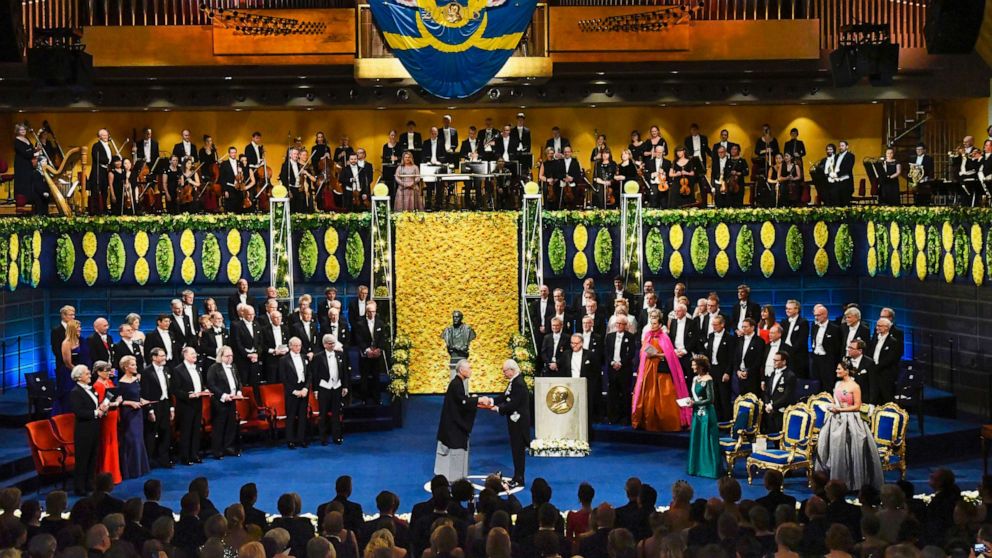


The 2019 Nobel Prize winners in the categories of physics, chemistry, physiology and medicine have been announced and none of the winners are women.
The lack of female representation in the science categories of the world's most prestigious prize has not gone unnoticed by advocates for women in science.
"It was of course very disappointing," said Dr. Heather Metcalf, chief research officer at the Association for Women in Science (AWIS), an organization for women in science, technology, engineering and mathematics. "I definitely don’t think it’s a fair reflection of the contributions women have made to STEM."
(MORE: 'Robotics Engineer Barbie' aims to encourage more girls to pursue STEM careers)Other advocates voiced their frustration on Twitter, pointing out that the work of Vera Rubin, the late female and American astronomer credited with discovering black matter, has not yet been recognized by the Nobel Prize committee.
Over the past 118 years, only 20 women have been awarded a Nobel Prize in the categories of physics, chemistry, physiology and medicine, according to an analysis by UN Women, which visually showed the lack of diversity in a GIF shared on Twitter.
"Research demonstrates that women are repeatedly under recognized for their research and scholarly contributions and tend to be over recognized for their teaching and service roles which has a lot to do with gender representations," said Metcalf. "There’s a lot of room [when reviewing nominations] for bias related to gender stereotypes."
Last year's Nobel Prize announcements were actually seen as a "breakthrough" for women.
Frances Arnold, a Pittsburgh native, became only the fifth woman in history to win the Nobel Prize in Chemistry. She won the Nobel Prize alongside two men for her work in "the directed evolution of enzymes."
Donna Strickland of Canada became the third women in history -- and the first in 55 years -- to win the Nobel Prize in Physics. She was also a co-winner with two men.
Marie Curie was the first woman to win the Nobel Prize in Physics in 1903, followed by Maria Goeppert-Mayer in 1963. The Nobel Prize pointed out in a tweet this week that Goeppert-Mayer, who won her Nobel Prize at age 57, did most of her award-winning research for free.
The Royal Swedish Academy of Sciences, which oversees the Nobel Prize, introduced measures before this year's awards with the hope of achieving a more diverse range of nominees in the science categories.
Göran Hansson, the academy's secretary-general, told Nature magazine earlier this month that the changes led to a "positive" but "small" trend of more women being nominated for awards.
(MORE: Female scientists start a database to showcase their work. Over 9,000 women join them)"We are ready to make more efforts if this is not sufficient, but it’s too early to tell," he said. "We need this to be in effect for some time."
According to research done by Metcalf and the AWIS, just nominating more women for awards is not enough.
"Regardless of the representation in the nomination pool, men were 18 times more likely than women to be recognized," Metcalf said of her research results. "We still need efforts to make sure that when we do have women in the pool, we’re basing selection on their scientific contributions and not allowing gender bias to come into play."
Metcalf's research found that having diversity on selection committees, providing bias mitigation education to committees and working with them to make sure they stick to their selection criteria are ways to achieve more fairness and parity.
It matters whether or not women win awards because of not just fairness in being recognized for their work, but also because women still need to be seen for their achievements, according to Metcalf.
"There is role modeling impact that can happen when you have women’s work being recognized in a prestigious kind of way," she said. "The next generation of scientists can see that and look up to those kind of achievements and see that as more possible for themselves."